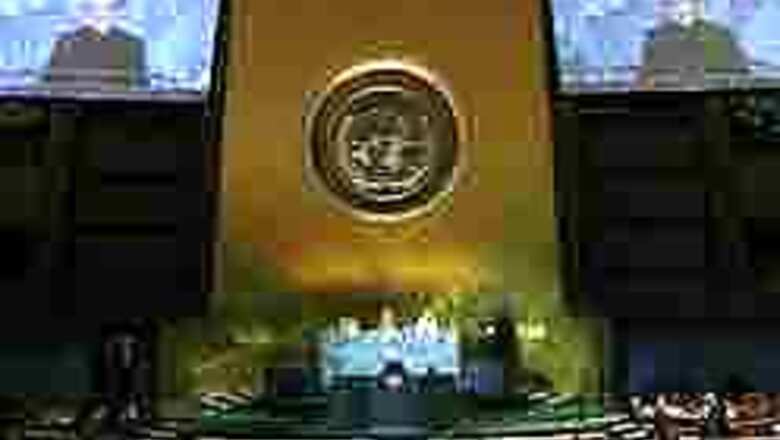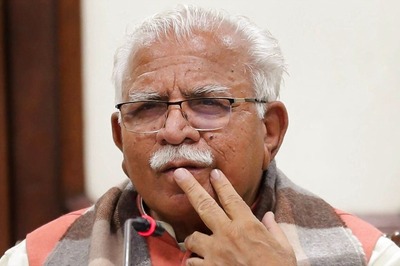
views
United Nations: Iran lost its bid to win a two-year seat on the UN Security Council, which has imposed sanctions on Tehran over its nuclear program, when it was trounced by Japan in a General Assembly election on Friday.
Iceland, an apparent victim of the financial crisis that has ravaged its economy, also failed to get onto the 15-nation council when the assembly, representing almost all the world's states, preferred Turkey and Austria for two European seats.
Mexico and Uganda, running unopposed in their regional groupings, were also elected in the annual assembly vote for five of the 10 so-called non-permanent seats on the powerful Security Council for 2009-10.
As expected, heavyweight Japan defeated Iran for an Asian seat coming vacant on January 1, but the scale of its victory -- a crushing 158-32 votes from the 192-member assembly -- delighted Western countries at loggerheads with Tehran.
US and British envoys were exultant that Iran had gained so few votes. "Its comprehensive defeat, a thrashing of Iran, is a very important signal of the whole membership's concern about Iran's actions," said British Ambassador John Sawers.
U.S. envoy Alejandro Wolff called Iran's showing encouraging. "Hopefully they will understand that this means that there is no support from the international community" for Tehran's disregard of Security Council resolutions, he said.
The Iranian delegation did not speak to reporters after exiting the General Assembly hall.
Western countries strongly oppose Iran's pursuit of uranium enrichment, which they fear is aimed at producing nuclear weapons, something Tehran denies. Many Arab states are also suspicious of Iran.
Japan has served nine previous terms on the council and is a prime contender for a permanent seat should the world's nations manage to agree on a way to expand the body.
Iran had argued that it was due a turn on the council, where it last served in 1956, when the Shah, later ousted in a 1979 Islamic revolution, ruled the country.
POWERHOUSE
The Security Council is the powerhouse of the United Nations with the ability to impose sanctions and dispatch peacekeepers. Its permanent members, which have veto power, are the United States, Russia, Britain, France and China, considered the victors of World War Two.
PAGE_BREAK
In the contest for the two European seats, Iceland scored 87 votes, well short of the two-thirds majority required. Turkey went through easily and Austria by a narrower margin.
Until recently Iceland, which has never sat on the council, was seen as a strong contender but the global financial crisis that has crushed its banks may have damaged its electability, diplomats said.
It is an open secret at the United Nations that countries seeking election to the Security Council often make aid and development promises to poor nations.
Foreign Affairs Minister Ingibjorg Solrun Gisladottir stopped short of blaming the crisis for her country's defeat. But, in reply to a question, she told reporters a British decision to freeze the assets of the British subsidiary of Iceland's largest bank had been "not helpful at all."
"It was very disappointing for us to have this experience with the British," she said.
Seats on the council, even non-permanent ones without the veto, are seen as prestigious, giving countries a high profile and a say in the most important world issues.
The five countries leaving the council at the end of this year are Belgium, Indonesia, Italy, Panama and South Africa.
Western countries are hoping for an easier time on the council next year than they have had recently, when they have faced opposition not just from Russia and China but from some elected members, too, over Iran, Myanmar and Zimbabwe.
Japan, a Western ally, will replace Indonesia, the only country not to back the latest sanctions against Iran. The West also expects Uganda to be more supportive than South Africa.















Comments
0 comment